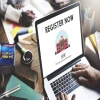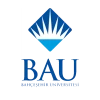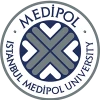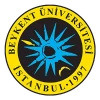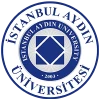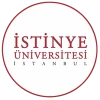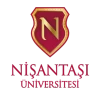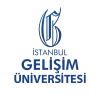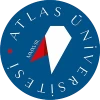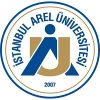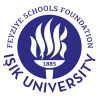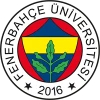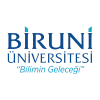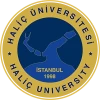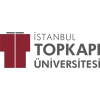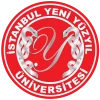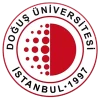The College of Health Sciences offers a concentration in physiotherapy, a discipline of medicine and health with interdisciplinary studies. Turkish universities teach physiotherapy with the goal of preparing medical professionals to design and carry out the necessary physiotherapy interventions and rehabilitation strategies created by the doctor following a diagnosis.
A physiotherapy bachelor's or master's degree programme teaches students how to assist those with physical limitations and enhance the health and proper operation of the human body and locomotor system. Additionally, they learn how to carry out rehabilitation activities following accidents, surgeries, or musculoskeletal, joint, and ligament issues. This aids patients in regaining their normal motor skills and the strength of their weaker limbs.
History of Physiotherapy
The field of physical therapy first emerged thousands of years ago. Since Chinese doctors began using massage and therapy in 3000 BC, it became one of the specialties that humans have learned and practised.
According to various medical studies, Hippocrates and Galen were among the early practitioners of physical therapy, massage, manual therapy, and hydrotherapy in 460 BC.
A group of British nurses founded the Society for Physiotherapy, then known as the Chartered Society of Physiotherapy, in 1894 AD, marking the beginning of physical therapy's status as a medical speciality. The physiotherapy profession was thrust into research, experimentation, and advancement as a result of the rapid growth of spinal cord injuries throughout World War II.
Some Diseases that the Specialization of Physiotherapy Contributes to Treating
Orthopedic system diseases and injuries: spinal sprain - fracture injuries - orthopedic operations - cruciate ligament operations
Muscular system diseases and injuries: muscle tension - muscle weakness - muscular atrophy
Nervous system diseases and injuries: paralysis - neuritis - disc problems - spinal injuries
Respiratory diseases: asthma - bronchitis - fibrosis of the pulmonary alveoli
Skin diseases and injuries: wounds - burns - psoriasis - some skin disorders caused by bacteria
Internal and heart diseases: circulatory disorders - high arterial pressure - angina pectoris - after open-heart operations
Diseases of the genitourinary system: prostate and urinary incontinence
Joint diseases: rheumatism - erosion of articular cartilage - joint roughness – arthritis
Practices Offered by Physiotherapy Courses
Therapeutic treatment that reduces pain and quickens the healing process.
Activating or inhibiting the central nervous system while enhancing muscle and overall balance.
Basic motor skills for disabled youngsters.
Treating pain, lessening discomfort from injury and functional issues, activating muscles, and enhancing joint and muscle movement.
Medical rehabilitation, improved movement and health, and keeping healthy and in good muscular fitness to help prevent some diseases and impairments.
Physiotherapy Specialty in Turkey
The first physical therapy and rehabilitation college at Hacettepe University was established in 1961 by Dr. Ihsan Dogramashi, honorary president of the institution. Before a number of other universities, including Istanbul University in 1986, 9 Eylul University in 1993, Pamukkale University in 1995, Bolu Abant Izzet Baysal University in 1996, and Başkent University in 1998, joined it, it was the only college for 25 years.
Since 1969, more than 8,000 physiotherapists have graduated from the over 52 Turkish colleges that now provide physiotherapy degrees. These students are employed by medical organisations and hospitals in Turkey as well as abroad.
Advantages of Studying Physiotherapy and Rehabilitation in Turkey
One of the best-known subfields of the medical support professions in Turkey is physiotherapy. It treats medical conditions, problems, and illnesses using natural methods. The specialty provides patients with care through a range of therapeutic and physical techniques. Turkish universities are particularly interested in this expertise since it is in high demand in society, particularly with the increased use of modern technological methods that have caused damage to the muscular system.
The discipline of physiotherapy is taught at some of the best universities in Turkey.
The European Union and most other countries acknowledge the degrees earned in Turkish universities.
Turkish universities provide practical labs, digital libraries with current books and research papers, as well as technologies that physiotherapy students can use. These facilities support scientific research.
Turkish institutions have outstanding faculty members that are well qualified in both theory and practise.
The highest concentration of the world's top physicians and physiotherapy specialists may be found in Turkey. Additionally, it boasts a number of medical facilities outfitted with cutting-edge technology.
Numerous social, cultural, and recreational programmes are offered to the students while they study physiotherapy.
Is it Difficult to Study Physiotherapy and Rehabilitation in Turkey?
For those with the drive and perseverance to achieve, studying physical therapy and rehabilitation in Turkey is not hard.
Communication skills, earnestness, correctness in reading and working, motivation to provide humanitarian aid, the ability to adapt to various situations, time management, and sustained focus are all necessary for the study of physiotherapy.
Documents and Admission Requirements to Study Physiotherapy in Turkey
The "Turkish Yös" test, or the "American SAT," and a high school transcript with a minimum set of grades, which varies from university to university, are requirements for admission to public Turkish universities.
The prerequisites for studying physiotherapy and rehabilitation in private Turkish institutions are a high school diploma with a minimum grade average of 50% and documentation of language fluency (if any).
It is necessary to hold a Tofel certificate if English is your chosen language of study. You must present a Tömer certificate if you decide to study in Turkish.
Some universities have minimum cumulative GPA requirements. Private universities DO NOT require excellent grades, while universities DO require a higher average when applying for scholarships. Required paperwork includes:
Copy of passport
A personal photograph or image.
Translation and certification of the General Certificate of Secondary Education (Baccalaureate) in English or Turkish.
The last semester's transcript, translated and validated, must be submitted if you have not completed secondary school.
Any secondary school diplomas should be translated and validated.
certificate of English proficiency, if any (if the student prefers to study in English).
It is recommended to send any supplementary paperwork and certifications that could support your request for a tuition fee discount.
Although it is not needed, applicants who want to study in English can take the SAT and get the minimum necessary scores at colleges that accept the SAT.
Duration of Physiotherapy Study in Turkish Universities
In Turkish universities, physiotherapy and rehabilitation courses take four years to complete. The period will be extended to a second year, referred to as a "language preparatory year," if the student does not earn a Turkish language certificate while pursuing this major.
Courses of Physiotherapy in Turkey
First Semester
Anatomy
Introduction to Physiotherapy and Rehabilitation
Introduction to Nutrition
Psychology
Fundamentals of Physics
Second Semester
Advanced Anatomy
Advanced Physiology
Heat treatment and Hydrolight
Pathology
Normal Motor Development and Developmental Stages of Body Systems
Ethics of Physiotherapy
Third Semester
Muscular Therapy
Electrotherapy
Measurement and Evaluation in Physiotherapy
Inner Sciences
Functional Neuroanatomy
Biomechanics and Kinesiology
Fourth Semester
Manual Therapy
Electrotherapy
Therapeutic Exercises
Physiological Exercises
Surgical Sciences
Biomechanics and Kinesiology
An elective course
Fifth Semester
Neurophysiology Approaches
Orthopedic Rehabilitation
Children Rehabilitation
Occupational Therapy
Pulmonary Rehabilitation
Orthotics and Rehabilitation
Optional area
Practical Training
Sixth Semester
Neurophysiology Approaches
Nervous System Rehabilitation
Physiotherapy in sports
Pharmacology
Prosthetics
Rehabilitation
Biostatistics
Seventh Semester
Musculoskeletal rehabilitation
Clinical Practice in Neurological and Cardiac Rehabilitation
Research Methods in Health Sciences
Eighth Semester
Public Health
Musculoskeletal Rehabilitation
Clinical Practice in Musculoskeletal Rehabilitation
Graduation Project
Best Turkish Universities to Study Physiotherapy and Rehabilitation in 2022
Study Physiotherapy with English Medium of Instruction
Bahçeşehir University
Medipol University
Istanbul Gelişim University
Istanbul Bilgi University
Istinye University
Istanbul Okan University
Haliç University
Yeditepe University
Başkent University
Koc University
Study Physiotherapy with Turkish Medium of Instruction
Medipol University
Istanbul Aydin University
Üsküdar University
Istanbul Okan University
Başkent University
Hacettepe University
Gazi University
Marmara University
Medipol University
Fees of Physiotherapy Study at Turkish Universities
In comparison to other nations, the tuition for physical therapy and rehabilitation programmes in Turkey is classified as being on average. In private universities, they are typically between $3000 and $9,000, and if you have a scholarship, they will be less.
Fees of Physiotherapy Study at Turkish Private Universities
English and Turkish are the languages of teaching at Bahcesehir University, which costs $5,172.
Istanbul Okan University; 4800 dollars for education in English and 4600 dollars for instruction in Turkish.
4000 dollars at Istanbul Gelişim University for English-language training and 3500 dollars for Turkish-language instruction.
4500 dollars at Medipol University for English-language training and 4,000 dollars for Turkish-language instruction.
Istinye University, 4,617 dollars, offers courses in both Turkish and English.
Haliç University, 3,500 dollars, offers courses in both Turkish and English.
Nişantaşi University, tuition of $2450, in Turkish.
The Physiotherapy and Rehabilitation programme at Fenerbahce University costs $4000.
Yedi̇tepe University offers the Physiotherapy programme for $8500 per year.
Postgraduate Programmes of Physiotherapy/Physical Therapy and Rehabilitation at Turkish Universities
Master's Programme
A master's programme in physical therapy in Turkey lasts two years and includes a master's thesis.
A master's degree programme is available in sports physical therapy and rehabilitation.
Turkish universities rarely provide specialised master's degrees in physiotherapy. Additionally, finding the same programme with an English instruction medium is uncommon.
Only one university offers a Master's programme in physiotherapy speciality with English as the primary language of instruction; the cost is 6000 USD for a programme with a thesis and 4,000 USD for a non-thesis programme at Yeditepe University.
Many universities, including the following ones, provide a Master's programme in physiotherapy with Turkish as the teaching medium:
Ankara Medipol University, two years, with thesis.
Bahçeşehir University, two years, 9,000 dollars instead of $12,000 dollars, with thesis.
Haliç University, two years, 5000 dollars with thesis.
Istanbul Aydin University, two years, with thesis, $8,500
Istanbul Gelişim University, 2 years, 3000 dollars with thesis; 1.5 years, $3000 non-thesis.
Two years at Istinye University, $4500 with thesis.
Two years at Istanbul Okan University; $4,500 with thesis.
Üsküdar University, two years, 3100 dollars with thesis.
Ph.D. Programme
Only Turkish is offered as the language of study for PhD programmes. The following universities offer the programme for 4 years:
9,000 dollars instead of 40,000 dollars for Bahçeşehir University.
8,000 USD for Halç University.
7,000 dollars at Istanbul Aydin University.
Most popular Physiotherapy Programmes for International Students in Istanbul
Sports Physiotherapy
Prosthetics, Orthotics and Biomechanics Programme
Physiotherapy and Rehabilitation
Jobs and Career Opportunities for Physiotherapy Graduates in Turkey
The title "Physiotherapist" is given to those who have completed the physiotherapy and rehabilitation programme. Graduates of the programme can pursue advanced degrees (a master's or a PhD), respectively, to become physiotherapists or doctors of physiotherapy. Turkish university graduates in physiotherapy can find employment in the following fields:
Physiotherapist
Athletic Therapist
Acupuncture Practitioner
Manual Therapist
Exercise Physiologist
Work in hospitals and private clinics
Work in private schools or community centres
Work in elderly care centres
Work in sports clubs
Work in academic fields
Related Disciplines to Physiotherapy
Biomedicine
Public Health
Human Medicine
Dentistry
Physiotherapy
Pharmacy
Veterinary Medicine
Nursing
Nutrition and Dietetics
Complementary and Alternative Medicine
Health Management
Health Sciences
Midwifery
Clinical Psychology
If you interested to study in turkey call us now
